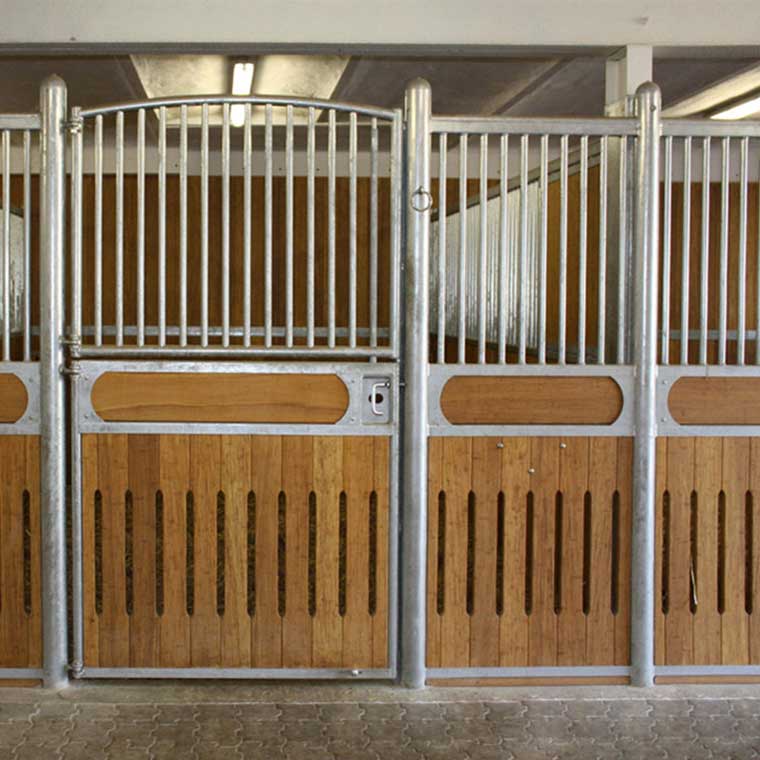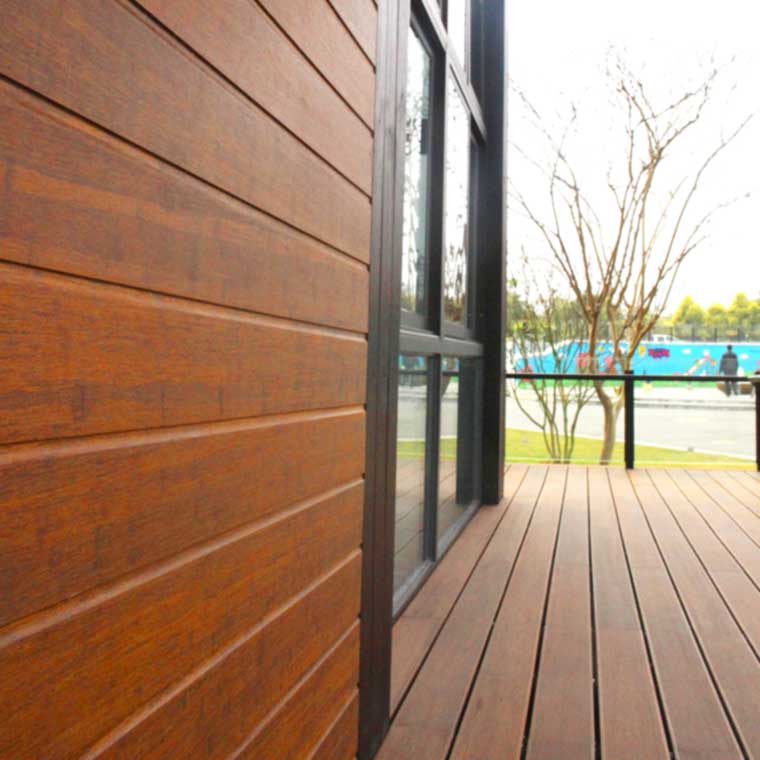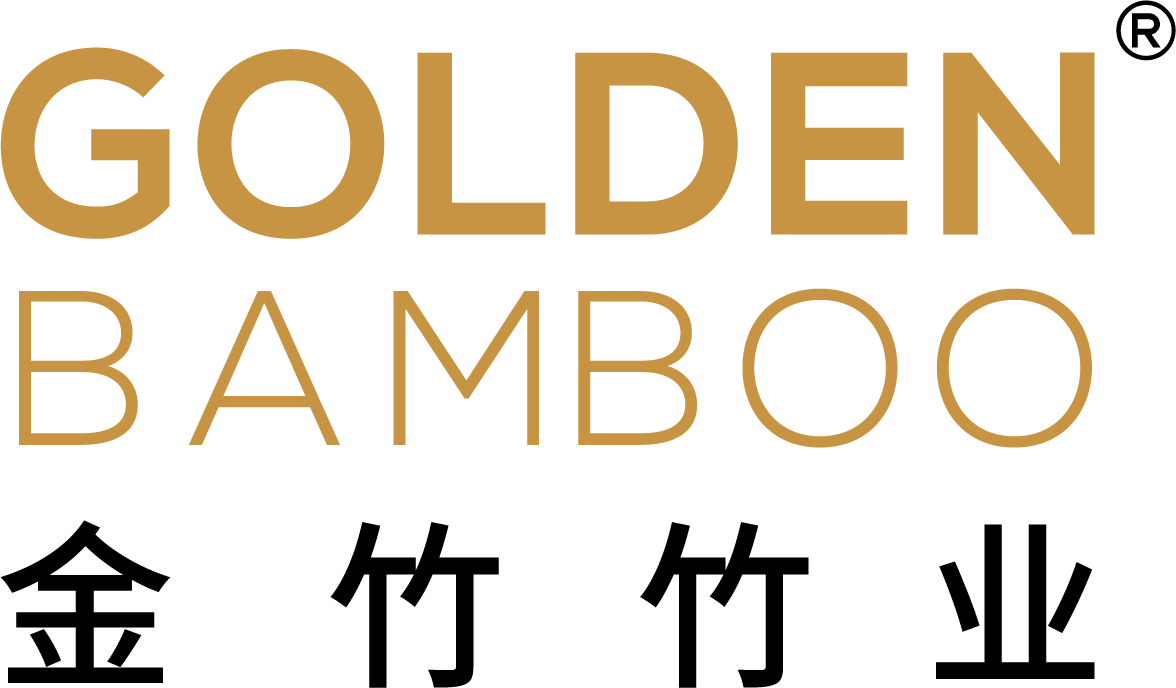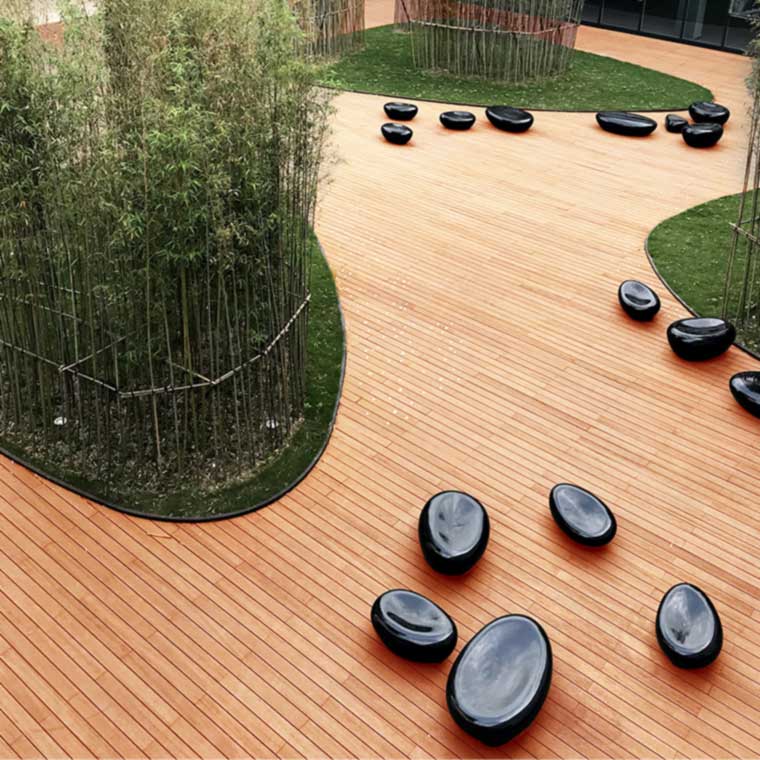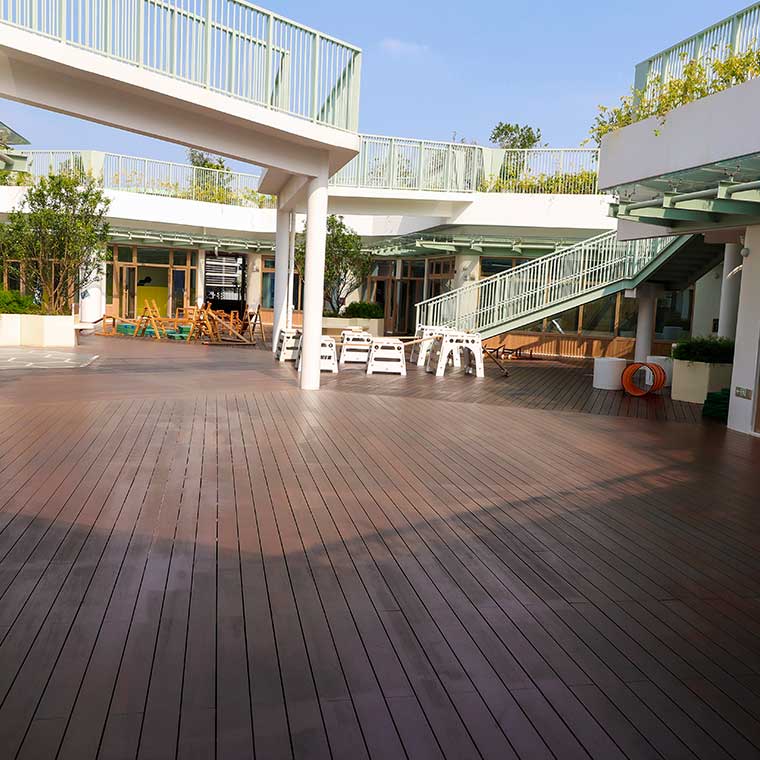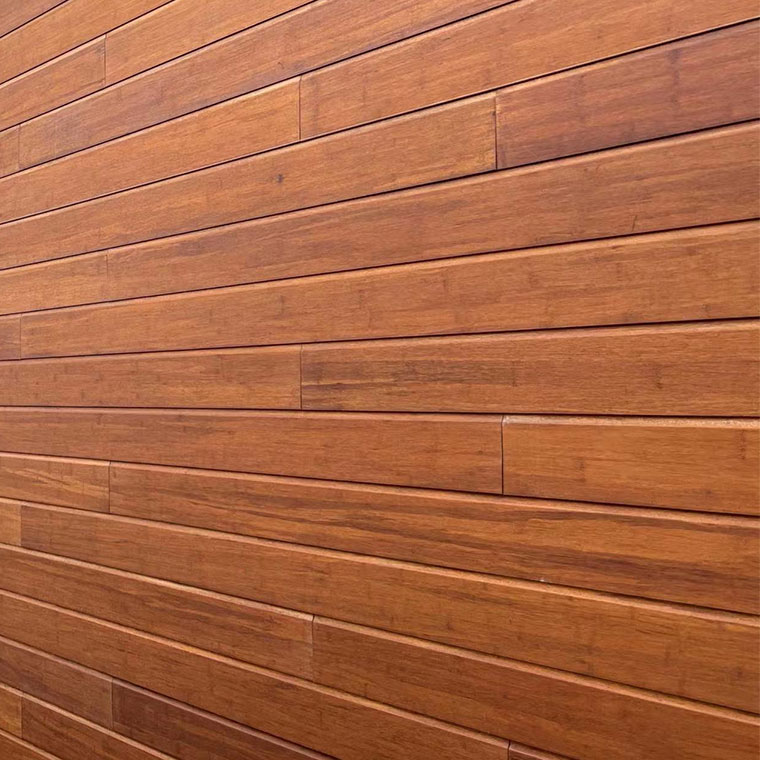Bamboo takes 3-5 years to become useful material, It is favorable for construction purposes. Due to its properties of greater strength, impact toughness, fireproof, durability, easy workability, and availability; it is widely used in the construction field.
Bamboo has very strong fiber with compressive strength twice that of concrete and tensile strength near steel. It can be curved without breaking due to the strong and flexible fiber present in it.
Bamboo has been valued in Asia for thousands of years as an extremely reliable building material. Not only does its high growth rate play a decisive role, but also its impressive material properties. Because of these advantageous physical and strength characteristics, bamboo is suitable material for application in different types of structures and constructions.
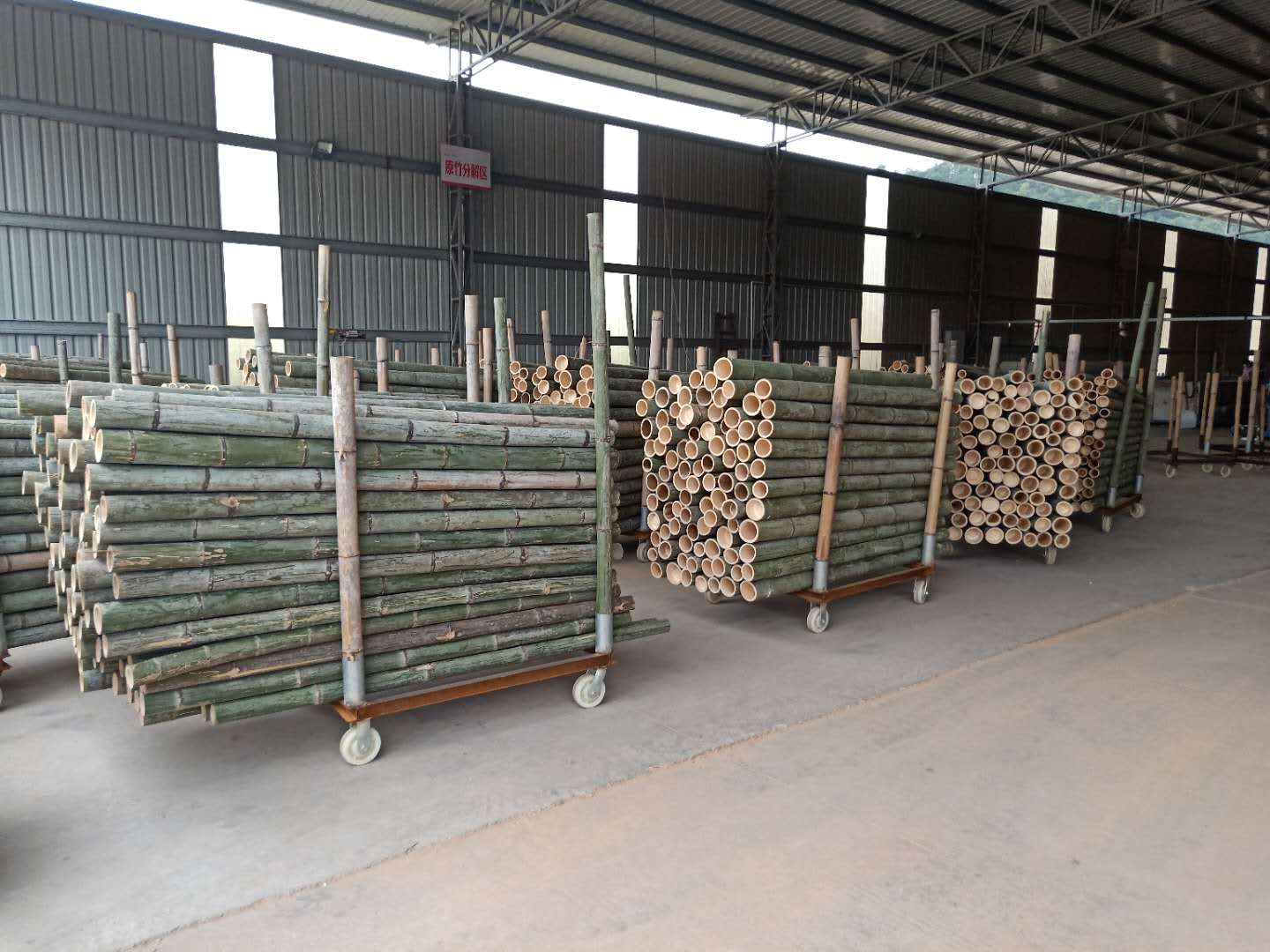
1. History: Bamboo as a Construction Material
In ancient times, bamboo used in its natural form is seen to be associated with the cultures of South Asia, East Asia, the South Pacific, Central, and South America.
As time passes, it started to be used for supporting various suspension bridges, skyscrapers, and ladders, as architecturally designed masterpieces to give a smooth aesthetic finishing look as fencing, gates, gutters, fountains, etc., and so on.
After many significant kinds of research on elements and joints, the first structural design codes for bamboo were published by ISO in 2004 under its physical, mechanical, and structural properties which leads to the modern and advanced use of bamboo in construction workshops.
2. Applications of Bamboo as a Construction Material
Today, parquet floors, steps, plywood, door panels, furniture, etc. should be created according to the culture of thousands of years.
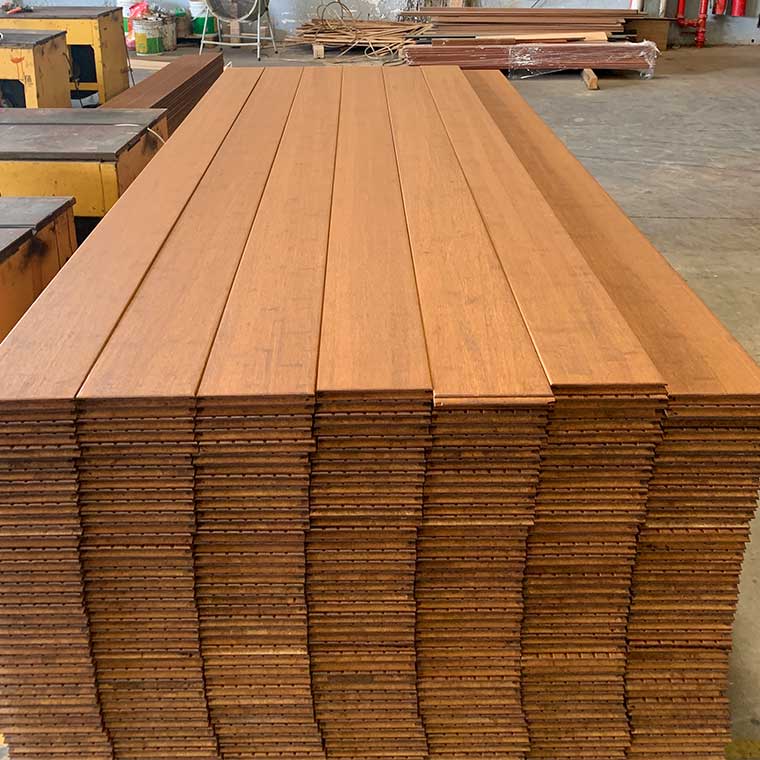
Some applications of bamboo as a construction material are:
1. bamboo decking :
Bamboo decking with the characteristic of high density-1200kg/m³, durability in Class 1, slip-resistance with R10 fireproof, anti-mildew, and anti-corrosion.
It provides the natural look and feel of traditional bamboo products whilst combining excellent performance characteristics. In addition, the surface could be stained to the color of the customers’ choice prior to the final coating process. The possibility of color options provides the user the capability to integrate an environmentally friendly bamboo product into any design motif.
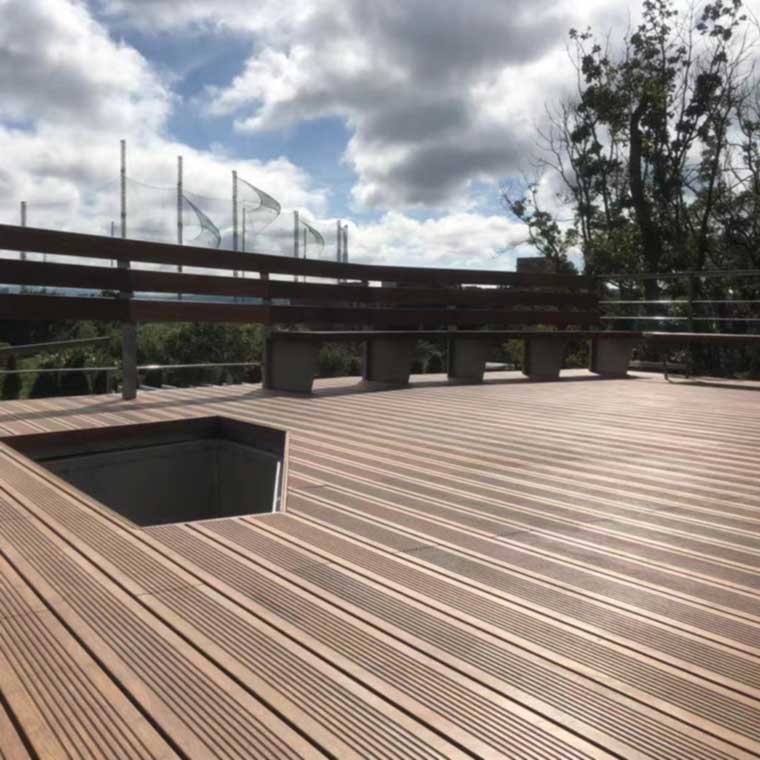
2. Bamboo Trusses:
Bamboo is flexible, ductile, and strong. So, it can be easily used for the construction of trusses at a low cost.
For making frames; properly seasoned/ dried straight bamboo is utilized.
For roofing; Corrugated Bamboo Roofing Sheets can be utilized.
3. Structural Reinforcement:
Bamboo has an essential structural behavior.
The placement of bamboo as a structural reinforcement is similar to iron/steel reinforcement rods in concrete.
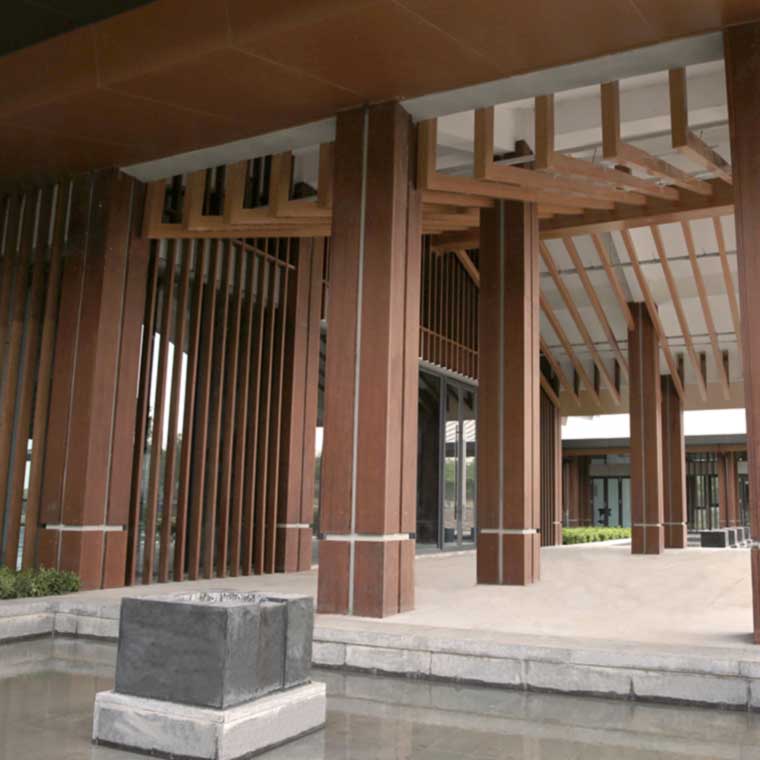
4. Bamboo walls:
Bamboo can be utilized for making bamboo walls. They should be protected from moisture using (2-3) coats of outdoor water-base WOCA oil before application.
5. Bamboo horse stable panel
Besides normal decking and wall cladding, bamboo can use as horse stable panels as well. Due to its high density and durability.
6. Bamboo Roofing and grilling :
Bamboo can be hot pressed through 2700 tons and carbonized to meet the hardness, dimensional stability, and durability.
Corrugated Bamboo Roofing Sheets are available in the roofing market.
7. Bamboo doors and windows:
For a sustainable and economically accessible aesthetic interior look; bamboo has been used in framing doors, windows, and balconies by weaving bamboo strips as matting.
